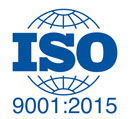Introduction:
The concept of green campus is an integration concept in the Education research and community service system in environmental management. Green campus is a combination of the environment and the campus world in its management. The concept of the environment which includes 3R (reduce, reuse, recycle), greening, in front of office, CSR and so on are combined with the campus concept which consists of the physical condition of the campus, campus location and the behaviour of campus residents. Basically its a eco-friendly practice to make the campus a better place to live in.
OBJECTIVES OF GREEN CAMPUS CONCEPT:
The college pledges to :
- The first step of the Go Green Programme involves establishing a viable Green-Campus Committee, within the organizational structure of the Institute.
- Hence, to give this initiative more clarity and authenticity, we now roll out a POLICYDOCUMENT spelling out the strategies, plans and other allied tasks to make this Program functional officially.
- Greening the campus is all about sweeping away wasteful inefficiencies and using conventional sources of energies for its daily power needs, correct disposal handling, purchase of environment friendly supplies and effective recycling program.
- The Institute has to work out the time bound strategies to implement green campus initiatives. These strategies need to be incorporated into the institutional planning and budgeting processes with the aim of developing a clean and green campus.
- Our initiative will include working with students, faculty and support staff to foster a culture of self-sustainability and make the entire campus environmental friendly. The Green Campus Initiatives (GCI) will enable us to develop the campus as a living laboratory for innovation.
LANDSCAPING INITIATIVE:
- Our college has a scarcity of open land space hence plantation to be carried out will be done within the building area , all to be light weighted so that the college building does not bear additional potting weights.
CLEAN AIR INITIATIVE:
- Our college pledges to reduce air pollution
- Maintain good green cover to enhance CO2 sequestration from campus.
- No vehicle day in a month to be initiated.
WASTE MANAGEMENT PROCESSES:
- This Policy underlines our commitment with regard to sustainable waste management. It outlines a set of agreed aims and deliverables for all aspects of sustainability, including recycling and waste management.
- The college adheres to the following principles of the waste management:
Prevent – avoid creating waste
Reduce – minimising the amount of waste produced
Reuse – repair, refurbish or relocate items
Recycle – promote segregation of waste to increase the quantity of waste recycled
Recovery – send non-recyclable waste to energy recovery
Disposal – this will only be used as a last resort if all other options are exhausted
Solid Waste Management :
- Measures shall be taken for minimal or optimal use of papers: Instead of taking hard copies of documents, keep in digital format as far as possible.
- Strategies to lessen the generation of paper waste are adopted: double-sided printing, printing in reduced font size, printing in “fast draft" mode etc.
- e-billing is promoted to reduce use of paper.
- Use of paperclips (over staples) is encouraged.
- Reusing of envelopes with metal clasps and file folders by sticking a new label over the previous one is promoted.
- Colour coded dustbin system is employed for segregation of solid waste:
green dustbins for biodegradable wastes like food; blue dustbins for disposal of plastic wrappers and non- biodegradable wastes. - Partial Food waste is used to generate fertilizer using the Bokashi- plant installed in the campus.
- Cleaning or emptying of dustbins is ensured at regular intervals daily.
- Sanitary napkins are disposed in incinerators installed in the campus.
Liquid waste management : (Chemical Waste Management)
- Implement Lab Pack Service: The lab pack disposal process involves first identifying, categorizing, and segregating each chemical by type (solvent, acid, or base), re-packaging them, then depositing the packaged chemicals into a drum or a tank. (Black bin)
- Academic strategies are taken to reduce the amount of chemical waste generated in the laboratories.
- Promote existing reuse schemes and develop additional recycling schemes to stream more waste at source.
- Communicate effectively with our employees, students, and residences to increase engagement and participation in the recycling initiatives across campus
E-waste Management :
- Obsolete electronic devices are disposed through approved agencies.
- Purchasing of devices with increased life time is encouraged.
- The buyback policy of the retailers will be utilized to purchase new computers and batteries for out-dated computers and laptops.
- MoUs with relevant agencies are renewed time to time.





